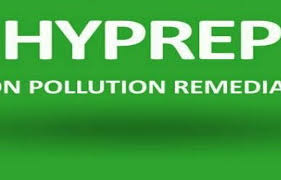The Hydrocarbon Pollution Remediation Project (HYPREP) has recorded significant progress in its ongoing environmental restoration in Ogoniland, Rivers State. The agency announced that 75% of its 560-hectare mangrove restoration project is complete, while shoreline cleanup has reached 20%.
HYPREP’s Project Coordinator, Prof. Nenibarini Zabbey, shared these updates during a review meeting with Ogoni stakeholders in Port Harcourt. He emphasized that the restoration efforts are unlocking opportunities for farming, fishing, and other livelihood activities that had been stifled by decades of oil pollution.
“Our community-led restoration has progressed substantially, with more areas becoming viable for productive uses,” Zabbey said. “This project directly enhances food security and livelihoods for Ogoni and neighboring communities.”
In addition to environmental remediation, HYPREP is constructing a Centre of Excellence for Environmental Restoration, which is 70% complete. The facility will offer vocational training and cutting-edge research for innovative remediation technologies. The project, Zabbey explained, aligns with plans to equip Ogoni youths and women with demand-driven skills to improve their employability.
Related posts:
- HYPREP commits to Ogoni clean up with 130 ongoing projects
- Rivers State Begins Mangrove Restoration to Save Wetlands
- MOSOP-USA Sets Conditions for Oil Production in Ogoniland
The agency is also in discussions with the African Development Bank to establish an agro-industrial processing hub in the region. This initiative, according to Zabbey, will further drive economic growth while ensuring sustainability.
HYPREP has made strides in providing Ogoni communities access to clean water, a move critical for public health and well-being. Additionally, the agency has created 7,000 jobs through its various programs, including an internship initiative for 40 young Ogoni science and engineering graduates.
Zabbey announced plans to begin a socio-economic study in January 2025, which will guide a blueprint for Ogoni’s development. He emphasized that transparency, collaboration, and stakeholder engagement remain central to HYPREP’s work.
However, he acknowledged that challenges persist, urging stakeholders to remain united. “Misconceptions must be addressed, and communities need to understand HYPREP’s scope and limitations,” Zabbey said. “We are committed to delivering on our mandate of environmental restoration and sustainable development.”
Stakeholders at the meeting, including Prof. Barineme Fakae, a former Vice Chancellor of Rivers State University, praised HYPREP’s progress. Fakae stressed the need for cooperation, warning that disagreements could stall the project’s success.
The Ogoni cleanup project, initiated to remediate decades of oil pollution, continues to advance, offering hope for a healthier environment and improved livelihoods for the region’s residents.




